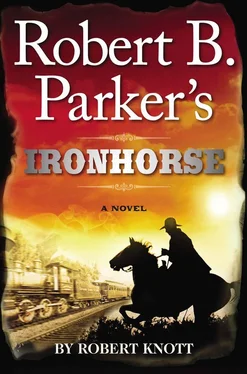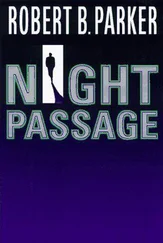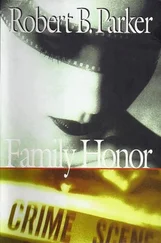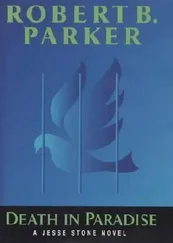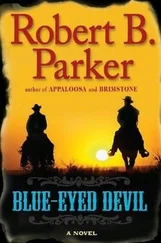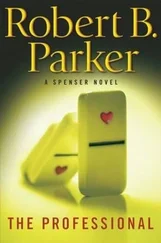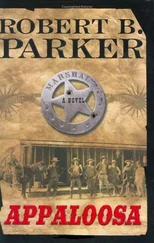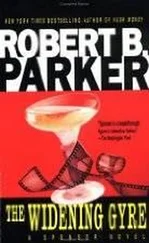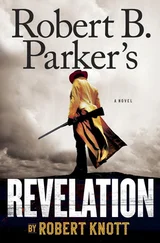“They’re not renting to miners,” Virgil said.
“Who they renting to?”
“The miners just stop by ’n visit.”
“Visit who?”
“Working ladies,” Virgil said. “Widow Callico and Allie turned the place into a whoring establishment.”
“A whoring establishment?”
“Yep,” Virgil said.
I took another drink and thought about what Virgil was telling me some more. I wished I hadn’t asked about the telegram now, but it was too late to turn back.
“What’s the name of it?”
“The name of it?” Virgil asked.
“The establishment?”
“Hell, I don’t know, Everett,” Virgil said. “What difference does that make?”
“Queen of Storyville was where Widow Callico worked when she was the Countess.”
“Queen of Storyville?” Virgil said.
“Yep, that’s where Widow Callico worked before she was Mrs. Callico,” I said. “I was drinking a beer with Chauncey Teagarden in the Rabbit Saloon. He told me Widow Callico was the Countess at the Queen of Storyville, a big whore palace in New Orleans.”
“Countess?”
“That’s what Chauncey said. Said she wore fancy dresses with nothing underneath. No pants on her queen.”
“She called herself the Countess?” Virgil said.
“Chauncey used to visit her, he said, before he was old enough to shave. Said she was a busy Countess. Said that was where she met Amos Callico. Amos took away the title of Countess and gave her the title of Mrs. Callico before you took away the title of Mrs. Callico and gave her the title of Widow Callico.”
The coach slowed up some; I turned the wheel and released some of the friction I had on the brakes so we would not slow up too much.
“So, are Allie and Widow Callico selling pieces, too, or are they just running the business side of things?”
“I’m not real sure of the particulars about that,” Virgil said. “But with Widow Callico’s background as the Countess and Allie’s history of whoring, I wouldn’t put it past them.”
“Pony didn’t say?”
“No,” Virgil said. “He did say she was living there.”
“Living there?”
“Yep.”
“You mean she moved into Callico’s place?”
“According to Pony’s telegram, she did,” Virgil said. “She moved in after our house burnt down.”
“What? Damn, Virgil, your house burnt down?”
“Allie was cooking some fat belly, pan caught on fire, the curtains took to burning, and the whole place went up.”
I looked at Virgil. Virgil was looking down the track, and he did not look at me.
“Damn, Virgil. Appaloosa burnt up something good after our fight with those renegade Chiricahuas, and it took a long while and a lot of money to put the town back together. Your house was one of the few places that did not get burnt and now this?”
“Yep,” Virgil said.
“And all because Allie was cooking fat belly?”
Virgil nodded.
“Allie’s never been much of a cook, you know that, Everett.”
“Fat belly?” I said. “Pony said she was cooking fat belly?”
“According to the telegram,” Virgil said. “Fat belly.”
I turned the wheel ever so slightly, keeping us from slowing some more.
“Allie doesn’t eat fat belly,” I said.
“I know,” Virgil said. “She don’t like it.”
“So who was she cooking the fat belly for?” I said.
“I don’t know,” Virgil said.
A gust of wind swirled the rain around a bit more. We were on a wide, fairly flattened curve, and the coach slowed. I thought we might stop, but there was no sign of the back end of the train cars with the bandits that had drifted away from us. I knew there would not be a possibility of stopping as we slowly rolled on.
“Is that it?” I asked.
“It what?” Virgil said.
“Is that the all of the telegram?”
“Yes,” Virgil said. “That’s all the telegram said.”
“Damn,” I said. “That’s one helluva telegram.”
“Yep, Pony wrote the code himself. He wrote it after the telegrapher left the office, on account he didn’t want to spread the news around town any more than the news was already spreading,” Virgil said. “I imagine it took him all night. Pony’s coding wasn’t really up to snuff. Western Union fellow in Nuevo Laredo deciphered it the best he could. I picked up a copy of the World-Wide Travellers’ Cipher Code book at the Western Union office there when we crossed the border and went through the whole thing myself just to make sure the telegram was deciphered correctly.”
Virgil stopped talking.
I pocketed my flask, and we rode the rail in silence for a long while as I worked the brake regulating our speed downhill.
“I suppose it could be worse,” I said.
Virgil looked at me.
“The telegram,” I said. “Not sure how exactly, but it could.”
“No matter,” Virgil said. “Don’t change the fact Chauncey Teagarden can go about town doing as he pleases while we’re out marshaling.”
“No, it don’t,” I said, “especially since you left him in charge of peacekeeping duties.”
“Especially,” Virgil said. “Not much peaceful about the whole of it, though.”
“Not,” I said.
“But it’s just the way it is, it’s the way things go. Some things are certain and some uncertain,” Virgil said. “Most being uncertain. You know that, Everett, and it’s an uncertain thing we do.”
“Is,” I said.
“So,” Virgil said. “We keep one eye open on the certain things and the other open on the uncertain.”
I thought to myself about the certainness of what to expect from Allie French as we coasted in the dark. There wasn’t much uncertain about Allie. Fact being, Allie French was as predictable as sundown.
“But,” Virgil said, “‘what lies before us and what lies behind us are small matters compared to what lies within us.’”
“Emerson?”
“Yep,” Virgil said. “Ralph Waldo.”
After that, Virgil stopped talking. We rode in silence for the next few miles.
I understood the nature of Virgil’s dismay. When Virgil’s mind was set, it was granite. He believed in Allie. His mind was set on that simple fact, and he cared for her deeply, whether she was whoring or not. It was never actions that shackled Virgil’s interest, but more to it, the nature behind the actions.
Virgil was more capable than anyone I ever saw in a struggle, but Virgil always valued strategy over struggle. I always thought if Virgil had fought with the Army he would have made a hell of a general. There would be no other place for him besides the top. In a way, Virgil maneuvered as a general in everything he did. Not all generals, but the ones who were fearless and thoughtful. Virgil was selfless, matter-of-fact, always knowing there was nothing more to the future than the present, and that fact made him stand taller than most.
“Dead hand,” Virgil said, almost quiet-like.
Virgil was signifying the fact we were rolling past a dead gunman tossed off the train.
“Not much of a burial,” I said.
“No, it’s not,” Virgil said.
“Not much of a life, either.”
“Not,” Virgil said. “There’s another.”
“Seen a lot of dead men, especially in the Army,” I said. “Never comfortable with the fact, really.”
“Killing a man is one thing,” Virgil said. “Getting comfortable with it is another thing. Living among the dead is altogether something else.”
“Never was much for religion. Or really considered such a thing as living forever, but seeing crumpled dead men always makes me think there’s got to be something more to it. Especially if the poor bastard was just that, a poor bastard, which most of the time are the dead people we come in contact with.”
Читать дальше
